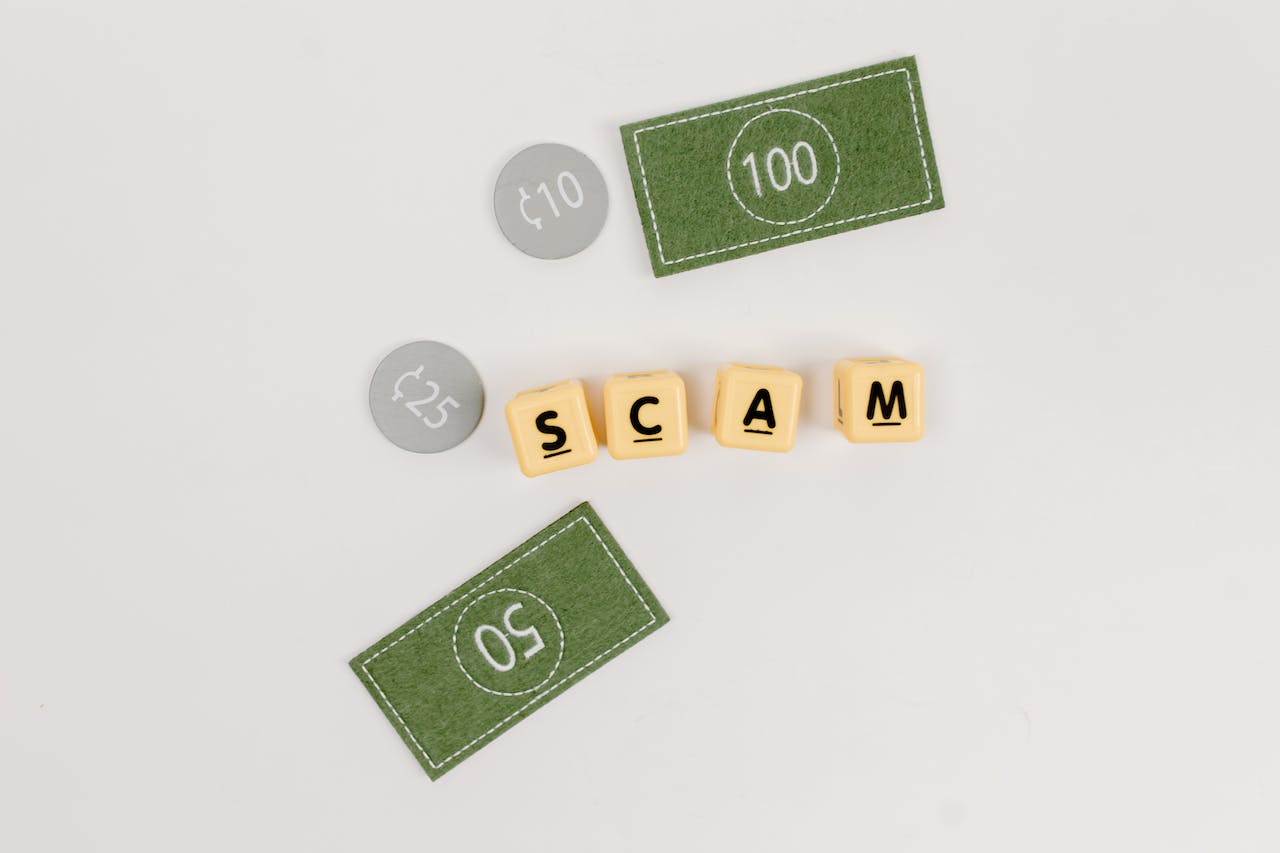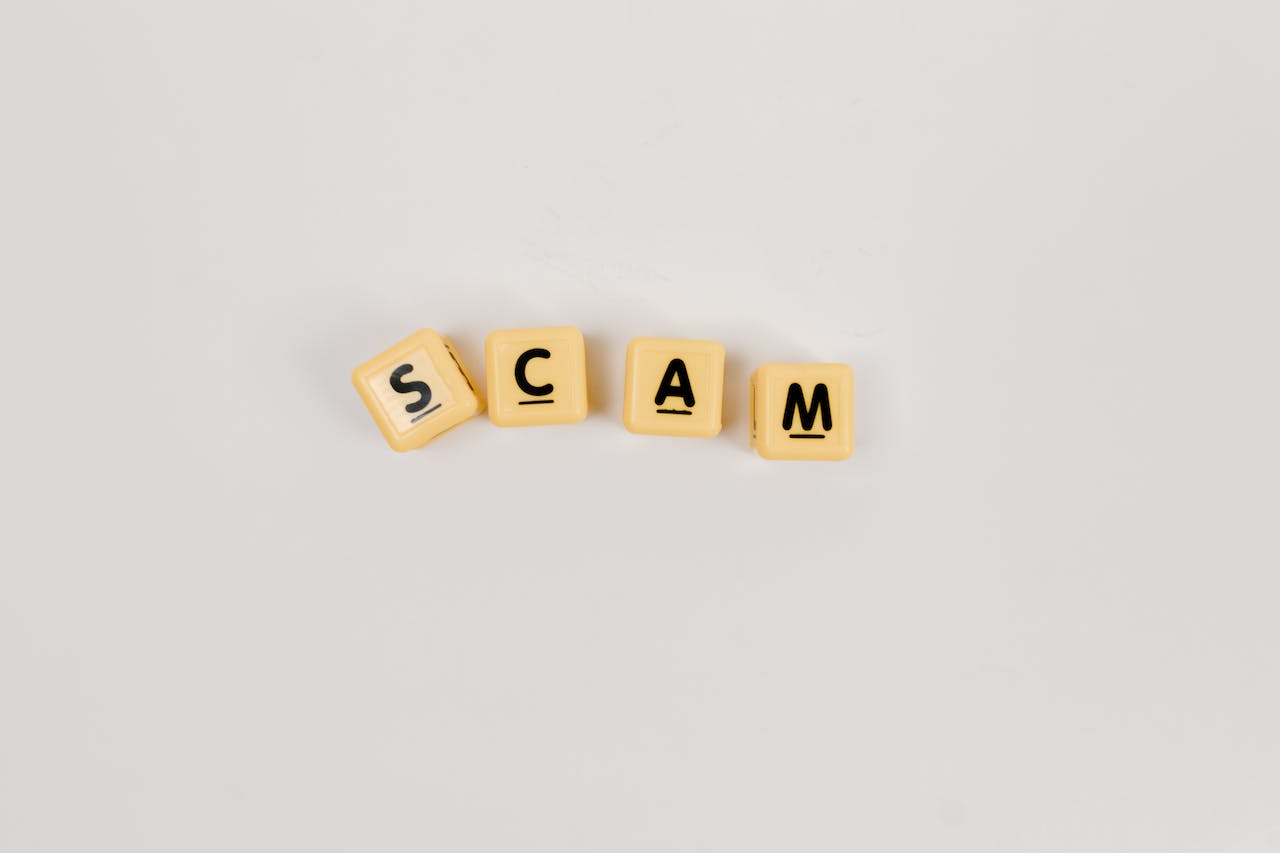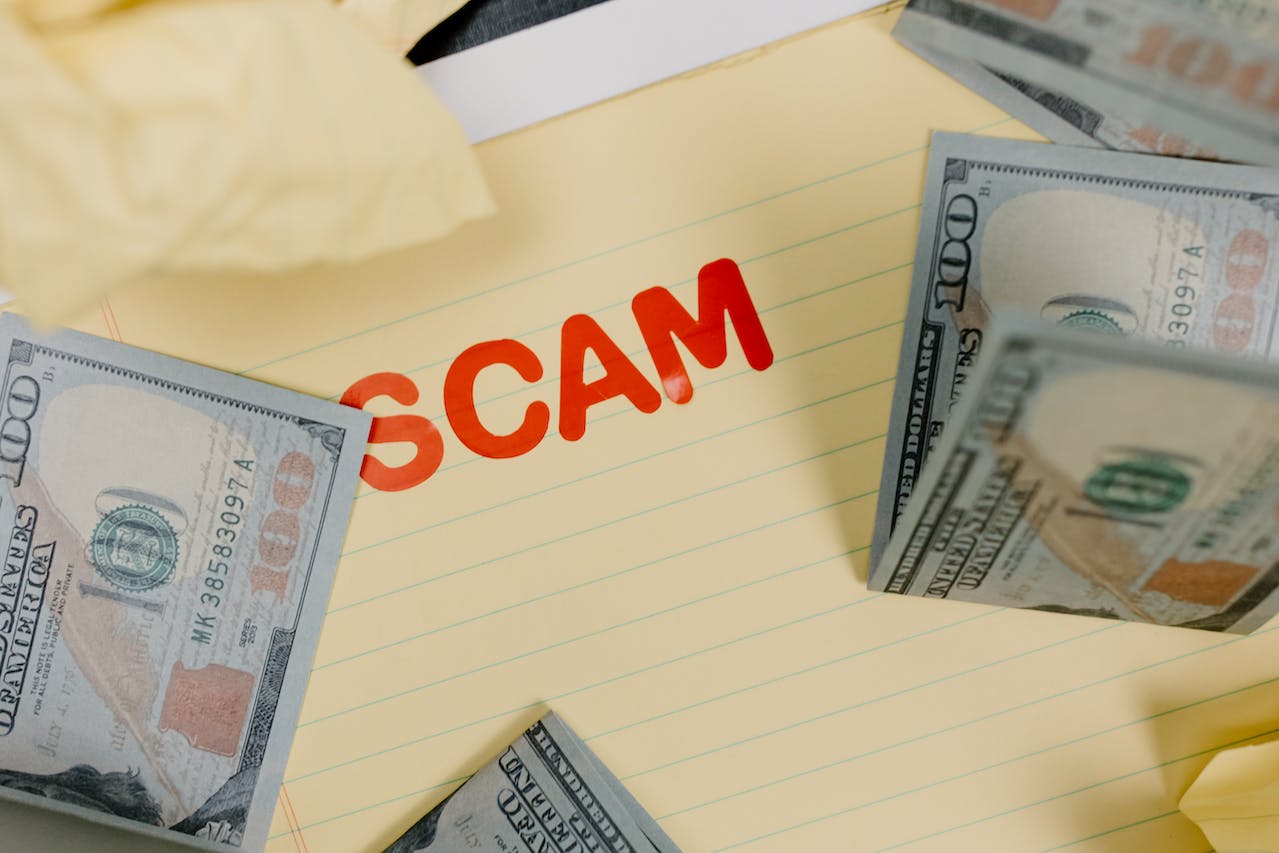
It doesn't say anything about how smart you are that you can fall for a scam. You're less likely to be scammed if you know what to watch out for. For those who have been hurt, don't keep quiet. You can do things to keep yourself and others safe. It's easy to forget that only some people we meet online have our best interests at heart because the internet is such an essential part of our lives.
Hackers and other thieves are always trying to stay one step ahead of people who use the internet. This means that internet scams are always a threat. The best way to stay safe is to know about the risks and how to deal with them.
It's easy for scams to work because they look like the real thing and catch you off guard. Scammers use new technology, new goods or services, and significant events to make stories that seem natural and get you to give them money or personal information. In this article, we will discuss how to avoid becoming a victim of business scam.
A scam is an unfair plan to get money or something else of value from people who fall for it. Many well-known scams target customers or private people, but some scams target companies. Fraud can happen to any business, no matter what size or type it is.
People who have been hurt have lost anywhere from a few tens of pounds to millions of pounds. A company can lower its chances of falling for a scam if it knows where it is weak and can spot it for what it is. Follow these steps to avoid becoming a victim of scams.
Update Your Devices
Make sure that all of your gadgets have any new updates that they might need. Please make sure you update your phone or computer when the time comes.
Connect To Know Networks
Only connect to a known Wi-Fi network when you use Wi-Fi. Hackers can quickly get into your account(s) if you join a network you need clarification on. There may be something fishy about the name if it has typos or extra letters.
Creating Passwords
When you make your passwords, use a different one for all of your identities. We know it's easy to do this so you remember your password, but the wrong person could then get into all of your accounts; as many passwords as you can remember will keep you much safer.
When you make a password, use solid and one-of-a-kind words or sentences. Also, change it every couple of months to keep it from getting ripped off!
Make passwords that are hard to guess and change them often. There should be a mix of capital and lowercase letters, numbers, and symbols in a strong password. Don't use the same password for more than one account, and don't tell anyone, not even family or friends.
Keeping Private Information Private
Make sure you are safe and aware when you use social media a lot. Keep private information private, like the names of your family members, your home, or where you work.
Also, check out how private your social media pages are. If someone who isn't your friend or a stranger looks at your page, you can change the settings so that they can only see a picture.
Practice Safe Internet Use
Delete spam emails that ask for personal information and keep your security and anti-spyware software up to date to protect your data.
Also, never email or post on social media with your credit card number, bank information, or other private data. When you visit sites you don't know or trust, make sure you use a virtual private network (VPN).
Shop Online With Caution
Watch out for deals that seem too good to be accurate; they probably are. Also, remember that nothing is free. When you shop online, always use a site that you know and trust. For instance, look for a lock icon on your computer or a "https" in the search bar to be sure the site is safe.
Review Social Media Privacy And Security Settings
Watch out who you connect with on social media sites, and learn how to use your privacy and safety settings to stay safe. If you see fishy behavior, click on spam, or fall for an online scam, protect your account and let someone know about it.
Be careful about what you post on social media because scammers could use it to make a fake identity or target you with a scam.
Avoid Streaming From Unknown Websites
Malware can be a big problem when you stream material from websites you don't know, and that might not be real.
Digital pirates often give away material for free without permission to get a lot of people to visit their sites. You should only stream from sites that you know and trust.
Train Employees On Safety
If a lot of workers are allowed to pay for goods or services, make sure that all of them know how to keep their payment information safe, tell the difference between safe and unsafe websites, and spot the signs of a scam.
You should hold a class where people can practice scams at work. Your business can also make a scam-avoidance guidebook and give workers case studies of past scams to help them see what other businesses did wrong.
As an alternative, you could lower your risk by giving the buying job to a small group of people you trust. You just need to make sure that those team members know how to protect your company's items.
Know An Imposter When You See One
Scammers like to send emails that look like they came from real companies that you may or may not do business with. Often, these emails have links that will take you to a copy of that company's website. The hacker wants you to try to log in and give away your passwords.
How can you tell if something is fake? Make sure that the URL of the website you land on fits the URL of the actual business. Also, check to see if the site has an SSL certificate. This means that any information you send will be safe and protected.
Establish Procedures For Everyone To Follow
There should be ways for you to deal with possible scams all the time. There should be rules about what kinds of information shouldn't be shared. Anyone in or outside the company should know who to tell if they think someone is committing theft.
When it comes to money, make sure that every employee knows the exact steps they need to take to pay sellers or give returns. It might be a good idea to make sure employees follow specific rules before they can send cash or type credit card numbers into websites. For instance, workers could ask a boss for permission before they pay for something or make a buy.
Report Attempted And Successful Scams
You may be lucky and spot one of these scams before it gets too bad. You could also fall for a scam, which happens to a lot of people every day. Your story should be told to the FTC, no matter what. People who want to give tips can do so on a particular page for the service. There is also one at the Better Business Bureau.
By reporting scams, you can help stop scammers from doing it again. Taking a few minutes to do this could keep other businesses from losing their hard-earned money, and the people who do this could face serious consequences.
What Is Corporate Fraud?
When a person or a business does something wrong in a dishonest or unethical way, that's called corporate fraud. More often than not, this type of business theft is done to help the person or company doing it.
Corporate fraud plans go beyond what an employee says they do and are known for being complicated and having a negative financial effect on the company, other employees, and people outside the company.
Fraud in businesses can be hard to spot and hard to stop. A business can limit the amount of theft that happens by setting up good policies, a system of checks and balances, and absolute security. Fraud in businesses is called a "white-collar crime."
10 Types Of Business Scams
Phishing Scams
- Email Phishing - Sneaky people send emails that look real, pretending to be from trustworthy places. They ask for your secret info, like passwords or credit card numbers. Always check if the email is genuinely from who it claims to be.
- Website Spoofing- Tricksters create fake websites that seem real. They want you to type in personal info, thinking it's a legitimate site. Always double-check the website's address to be sure.
Fake Invoice Scams
This scam involves sending made-up bills for stuff you didn't buy or services you didn't get. They hope you'll pay without asking questions. Always verify invoices and check if you truly owe anything.
Business Identity Theft
Business identity theft involves fraudsters impersonating an organization or individuals within it to commit financial crimes. This can include obtaining new lines of credit, loans, or credit cards in the business's name, filing fraudulent tax returns, and issuing realistic instructions to make electronic fund transfers.
According to the National Cybersecurity Society, small businesses are particularly at risk, with a 100% spike in business identity theft reported. The rise of the internet has made business identity theft a growing issue, with the number of incidents hitting record-high numbers in the past few years.
Tech Support Scams
Bad actors pretend to be tech helpers, saying your computer has issues. They might ask to control your computer and then charge you for fixing problems that don't exist. Be cautious and only allow trusted tech support to access your computer.
Business Lending Scams
When looking for a business loan, you should avoid deals with terms that are too easy. Scams that offer business loans will often tell you they have great rates, even if your company has bad credit.
You can get these dream loans, though, only if you pay a fee upfront. The con artist will then take your money and run away. It is recommended that you learn a lot about the loan company before giving any money to them.
Fake Check Or Overpayment Scams
The American Bankers Association says that check scams are some of the oldest tricks in the book, and they're still pretty common today. They look like a customer or someone pretending to be another business who gives you a check for more than you're due and then asks you to pay back the difference.
If this happens and the buyer asks for a return through a gift card, prepaid credit card, or wire transfer, be very wary. Scammers like these ways of getting paid because they are more challenging for the police to track down. You might not get burned if you wait a few weeks to give refunds for check payments. You should never return a customer through a route that can't be tracked.
Business Email Compromise (BEC)
Tricky scammers hack into a boss's email and use it to fool others. They might ask for money or confidential info. Always double-check with the person if something seems off in their emails.
Pyramid Schemes
This is like a money game where you're told to recruit others to join. The focus is on getting more people rather than on selling real things. Those at the bottom often lose money. Be wary of schemes that promise easy money through recruitment.
Investment Scams
Fraudsters convince people to invest in things that don't really exist or aren't worth anything. They promise big profits with low risk, but it's just a trick. Always research and be skeptical of investments that seem too good to be true.
Frequently Asked Questions
How Can Consumers Avoid Becoming The Victim Of A Scam?
Consumers can avoid becoming victims of scams by staying informed about common scams, verifying emails and websites, and being cautious with personal information online.
What Are The Ways Of Avoiding Financial Scams?
To avoid financial scams, individuals should update devices regularly, use strong and unique passwords, be cautious with online transactions, and stay informed about common scam tactics.
How Do You Protect Yourself After Being Scammed?
After being scammed, individuals should report the incident to authorities, change passwords, monitor accounts for suspicious activity, and educate themselves to avoid future scams.
Conclusion
In today's internet-driven world, it is crucial to understand how to avoid becoming a victim of business scam. It's about something other than how smart you are and knowing what to watch out for. Scammers use various tactics like phishing, fake invoices, and tech support scams. Understanding the types of scams and staying updated is key to staying safe.
Protect yourself by updating devices, using secure passwords, and being cautious online. Businesses should educate employees, establish procedures, and report scams to authorities. Remember, sharing experiences helps others stay safe. Stay vigilant, follow safety measures, and report scams to prevent financial losses. Together, we can make the online world a safer place.




